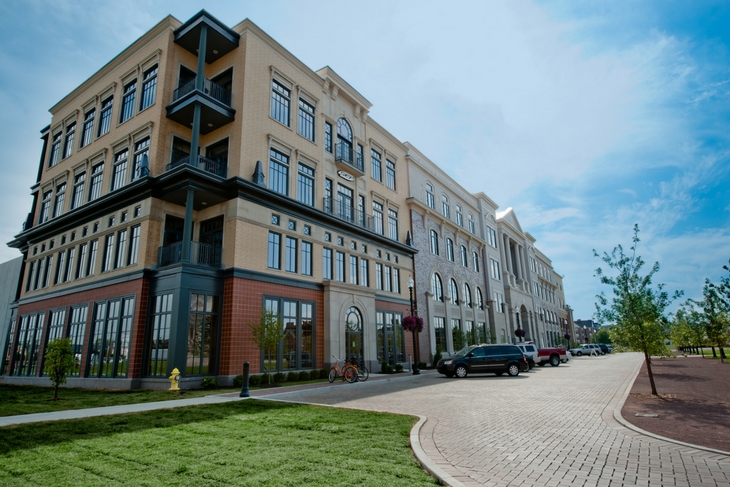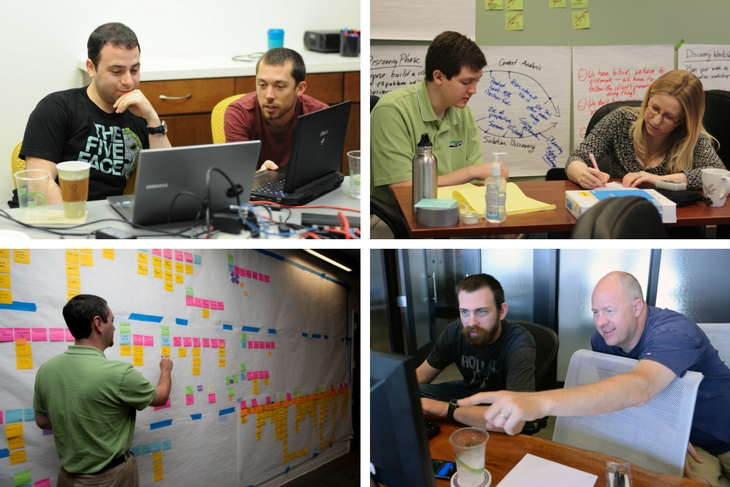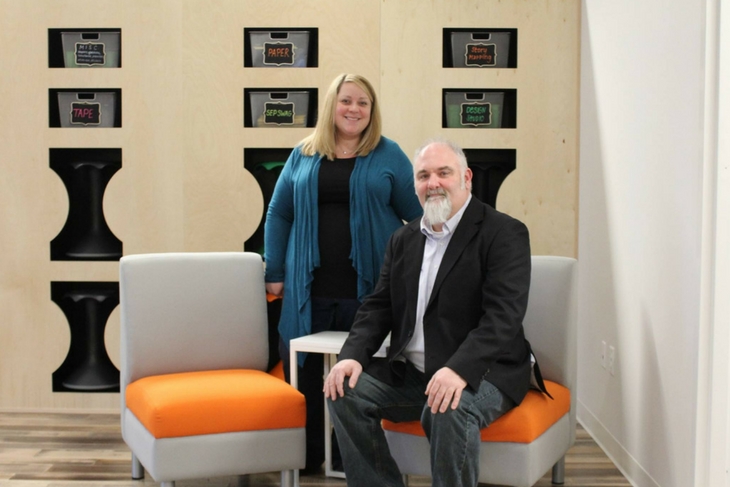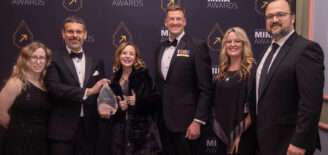SEP: the community of employee-owners who take on the big software development challenges
I parked on the street and walked into the Center for the Performing Arts building in Carmel, Ind., which isn’t what I was expecting when I set out to interview a couple of high-tech software executives. But when the elevator doors opened at the top floor, I was definitely in the right place — if the signage hadn’t given it away, the tech-chic, fun and functional decor would have. This is SEP.
The unique and inspiring location in the center of the Carmel Arts District is fitting. SEP is not a typical tech firm. For starters, not many tech companies have a history that dates back to the 1980s (fewer still in Indiana). Four Rose-Hulman Institute of Technology graduates founded SEP in 1988, including CEO Jeff Gilbert, because they wanted to create a place where engineers like themselves could be themselves and love what they do. They succeeded.
Today, SEP is continuing to fulfill that mission as a 100-percent employee owned (ESOP) company that takes on the big challenges in software development. They thrive on the kinds of projects that include complex ecosystems with components like hardware, software, devices, sensors, insulin pumps, global banking networks, autonomous tractors and jet engines, just to name a few.

“Of course, that’s not to say that we shy away from customers with straightforward software development projects,” said Raman Ohri, president of SEP. “Whether they are medium-sized businesses or very large enterprises, people call on us when they recognize that the path forward requires a depth of software development and systems knowledge that’s just not in their wheelhouse, or they don’t have the capacity in house they need to tackle something big and challenging.”
SEP isn’t a staffing firm, however, and they aren’t air-dropping in dozens of temps. SEP is a community of 120 full-time employee/owners — 100 of which are builders, developers, engineers and designers — and they bring entire cross-disciplinary teams to the table to help customers get their technical projects up and running. Sometimes that’s just one piece, a highly specialized website or app, and sometimes that’s a much bigger picture including internet-of-things connected networks, the databases they feed into, the cloud back-end that runs it all, and the user interfaces consumers interact with.
As is common with software firms, they can’t name names, but SEP has customers in a wide variety of industries like technology, manufacturing, agriculture, automotive, insurance, financial services, life sciences, medical devices, defense and aerospace. SEP is ISO 9001 certified, so the complexities of regulated industries aren’t too difficult to move into quickly, or to demonstrate the appropriate level of rigor in their processes.

Over the company’s nearly 30-year history, there have been a couple of dips in their growth trajectory, such as the dot com burst and the Great Recession. But for the most part they have “a steady, straight-line growth trend that goes up and to the right,” according to Mike Mumau, vice president of client relations for SEP. It’s not the hockey stick tech growth that makes headlines, but 5-15 percent year-over-year growth for almost 30 years is a different, perhaps more difficult accomplishment.
“Rapid, hockey stick growth is great for some companies, but that’s not who we are, that’s not our culture,” Mumau said. “Plus, I don’t think we would have so many team members who have been with us for five, 10, or 20 years or more if the focus were on growth. Instead we focus on solving the big problems — that’s what our team is passionate about, it’s what drives them.”
Ohri and Mumau both talked at length about the unique culture and capabilities at SEP. It’s an Agile methodology shop, and the company has invested heavily in user interface and user experience (UI/UX) design talent and facilities over the past five years. (See photos from our tour of the new SEP Design Studio storefront.) UI/UX has become an increasingly important part of what SEP offers its customers in service of delivering software products that users love and adopt quickly.

Part of SEP’s secret sauce is that they don’t really do much selling; they never have. Ninety percent of their customers are repeat and referral business, so their typical “sales call” starts with a cross disciplinary team of builders in the room asking questions and challenging the prospect on what they think they need to build.
Further demonstrating the point, Ohri recounted a recent conversation with a customer whose colleague was asking if he should engage with SEP for an upcoming project.
“This customer has worked with us for a few years now, so we have a great working relationship with a lot of trust built up,” Ohri explained. “He told his colleague: ‘Don’t do it unless you’re ready to change and be challenged to think and work differently, because they are going to push you.’ I think that’s the experience people are really looking for when they come to us. We push ourselves and our clients to be better so that we build better products and deliver better results.”


